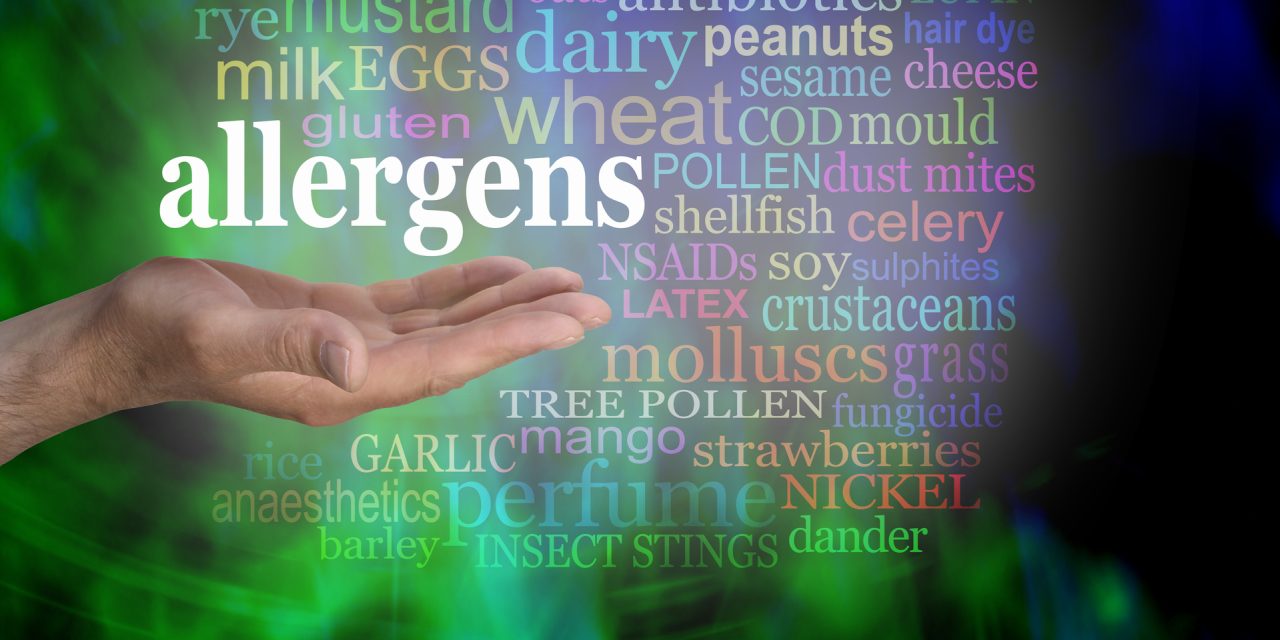Hemin, a substrate of heme oxygenase (HO)-1, induces HO-1 expression on a variety of cells to exert anti-oxidant and anti-inflammatory roles. However, the role of HO-1 in allergic diseases for dendritic cells (DCs) is not fully understood. Here, we report that HO-1 modulates asthmatic airway inflammation by hemin-treated DC-released extracellular vesicles (DCEVs). Following induction of bone marrow-derived DCs by hemin and then by house dust mite (HDM) in vitro, mouse CD4+ naïve T cells were cocultured with DCEVs to determine T helper (h) cell differentiation. C57BL/6 mice were sensitized by different stimuli-induced DCEVs and challenged with HDM to analyze the changes of inflammatory cells and cytokines in the lung and bronchoalveolar lavage fluid. The results showed that hemin-treated DCEVs (hemin-DCEVs) express phosphatidylserine (PS), CD81, heat shock protein 70, and HO-1, which facilitates regulatory T (Treg) cells differentiation in vitro and in vivo. In HDM-induced asthmatic mouse model, hemin-DCEVs inhalation reduced eosinophils infiltration and mucus secretion in the airway, decreased the levels of IL-4, IL-5, and IL-13 in the lung and the number of Th2 cells in mediastinal lymph nodes (MLNs), and increased the number of Treg cells in MLNs. Thus, our study demonstrated, for the first time, that EVs from HO-1-overexpressing DCs alleviate allergic airway inflammation of eosinophilic asthma by potentiating Treg cells differentiation and limiting proinflammatory cytokine secretion, which expands our understanding of HO-1 function, opening the door for HO-1 inducer-like hemin as a novel therapeutic strategy for asthma or other allergic diseases.© 2021 The Authors. Journal of Leukocyte Biology published by Wiley Periodicals LLC on behalf of Society for Leukocyte Biology.
Hemin-primed dendritic cells suppress allergic airway inflammation through releasing extracellular vesicles.


